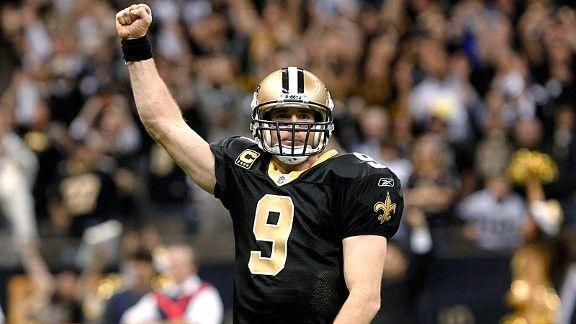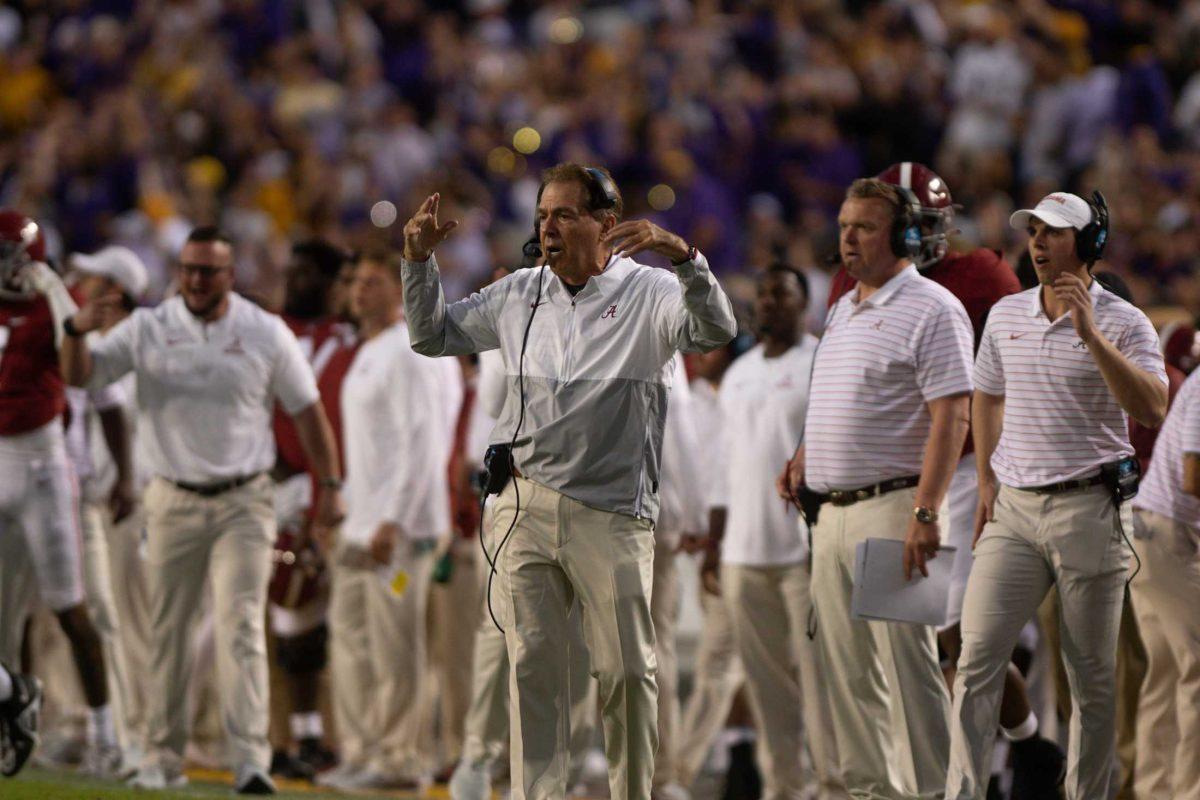The New Orleans Saints are leading a double life.
When in the Super Dome, they kiss the wife, tuck in the kids and proceed to pummel whichever unfortunate team the NFL decided to send to the Big Easy that week. But as soon as the Saints leave the comforts of home, the script seems to reverse.
Whether it’s because of inclement weather conditions or just having to play in someone else’s building, the road has not been kind to New Orleans. More often than not, the Saints are the ones getting put to bed, be it a blowout at the hands of Seattle or upset losses against mediocre clubs.
Every talking head spouts about how awful New Orleans is on the road, but not without exaggeration. The Saints’ Jekyll and Hyde act is overstated, and most critics point to the losses at New York and St. Louis while ignoring the rest of their road schedule.
Those two setbacks are inexcusable for a team with Super Bowl aspirations, but good luck finding a Super Bowl contender that hasn’t suffered an embarrassing loss. Cincinnati fell at Cleveland, Carolina stumbled in Buffalo and New England faltered at New York and Miami.
Denver and Seattle are the only two teams that took care of business away from home and against weaker competition, but the Broncos suffered a home loss to San Diego and the Seahawks let Arizona come into their stadium in Week 16 and win.
And shouldn’t a loss at home be more damning than one on the road?
The most notable blemish on New Orleans’ schedule is its 34-7 loss at Seattle, the overwhelming favorite to win the NFC. Should the Saints make it through the Wild Card round in Philadelphia, a repeat result is almost certain.
But just because New Orleans can’t win in Seattle doesn’t mean it can’t win elsewhere. The Saints snagged road wins at Chicago, a playoff contender, and against division rivals Atlanta and Tampa Bay.
Additionally, the quality of New Orleans’ losses at New England and Carolina, the two No. 2 seeds, seems to get swept under the rug. In harsh environments, the Saints were collectively two first downs and 30 seconds away from beating two 12-4 teams.
New Orleans could have drained the clock and sealed the victory with a first down in both games, but its inability to run the ball forced punts that led to the last-minute, game-winning touchdown drives.
Picking up those types of first downs is a mark of championship teams, and that’s why the Saints aren’t a serious Super Bowl contender this year.
With the 25th-ranked rushing attack in the NFL, New Orleans is largely one-dimensional and has trouble closing out games and wearing opponents down. Its running game is miserable on the road, averaging just 80 yards per game.
But the poor ground attack doesn’t explain the vast disparity between the Saints’ performances at home and on the road. They score more than twice as many points in the Dome as they do away from it, but they average only three rushing attempts and 20 yards more per game in New Orleans.
So where does the blame fall next? It’s only fitting that the man who shoulders the heaviest workload takes the most criticism in times of failure.
In the Super Dome, quarterback Drew Brees threw for 354 yards per game while racking up 27 touchdowns and just three interceptions, good for an outlandish 126.3 passer rating. But when the Saints hit the road, Brees amassed only 290 yards per game and finished with 12 touchdowns and nine interceptions.
Brees makes the offense go, and those numbers are like night and day. Still, the gap in performance begs more questions. Brees has shown what he is capable of, and he is joined by the same offensive firepower on the Super Dome turf as he is in any other stadium.
The only thing changing is how coach Sean Payton runs his offense.
Anyone who has followed New Orleans this year can attest to it. When at home, nothing in Payton’s playbook was off-limits. The Saints were slightly more dedicated to a diverse run game, and Brees took ample shots downfield to stretch opposing defenses.
But Payton apparently left half of his playbook at home every time his team boarded a plane this year. The seventh-year coach became conservative, electing to run in obvious situations and refusing to stretch the field with deep routes.
Payton took away the big play from his own offense and compartmentalized it into 20-yard increments. With no need to respect New Orleans’ rushing attack or throws over the top, defenses could confidently drop eight men into intermediate coverage or send extra blitzers to take advantage of a suspect offensive line.
Brees took on the literal pressure of defenders and the figurative pressure of having to win games by himself. When Brees wasn’t trying to get the ball off to avoid a sack, he had to force it into double and triple coverage in the face of a three-man rush. Hence, the aforementioned statistical disparity.
Payton has mega-talented players and an obviously potent scheme, but it’s up to him to stay true to his identity as a coach. If the Saints hope to earn a win in Philadelphia on Saturday night, they’ll need to stay devoted to a balanced attack and make the Eagles’ secondary cover the entire field.
It’s not too late for New Orleans to recognize the dangers of its double life. But if it would’ve stayed true to itself all season, it may not have had to leave home at all come playoff time.
Contact Marcus Rodrigue at
mrodrigue@lsureveille.com
Locks of Justice: Saints must stay true to identity on the road
January 3, 2014

Drew_Brees2
More to Discover










